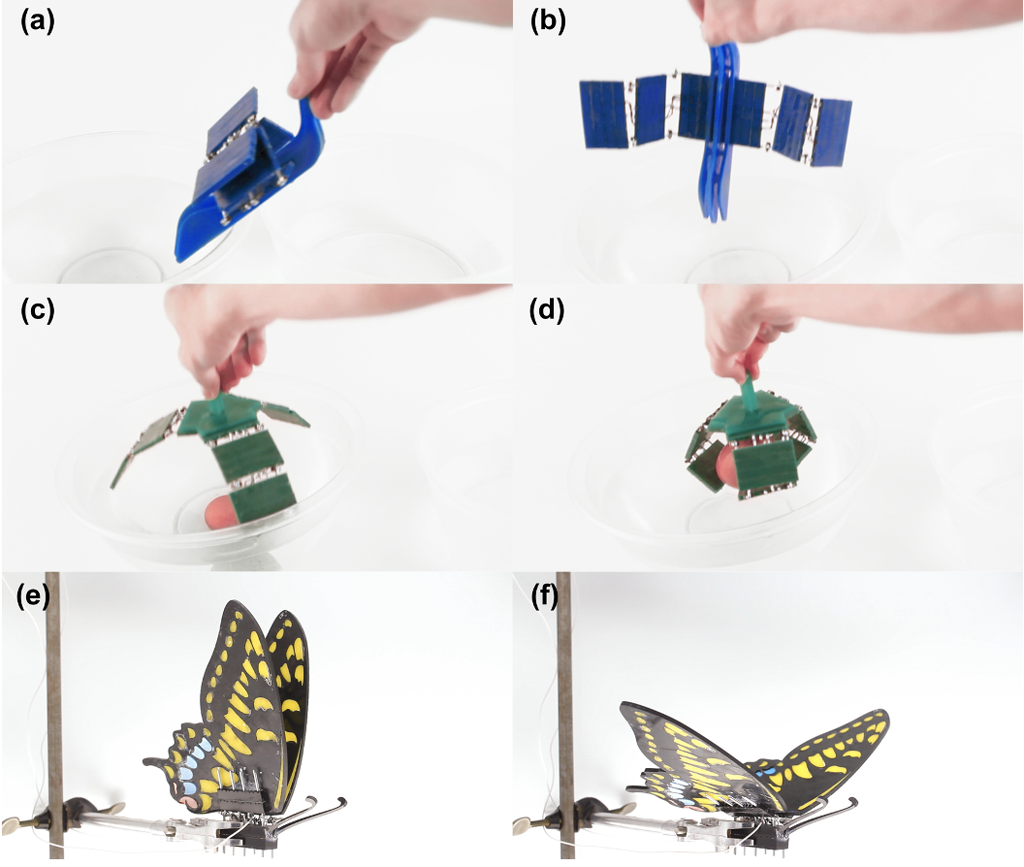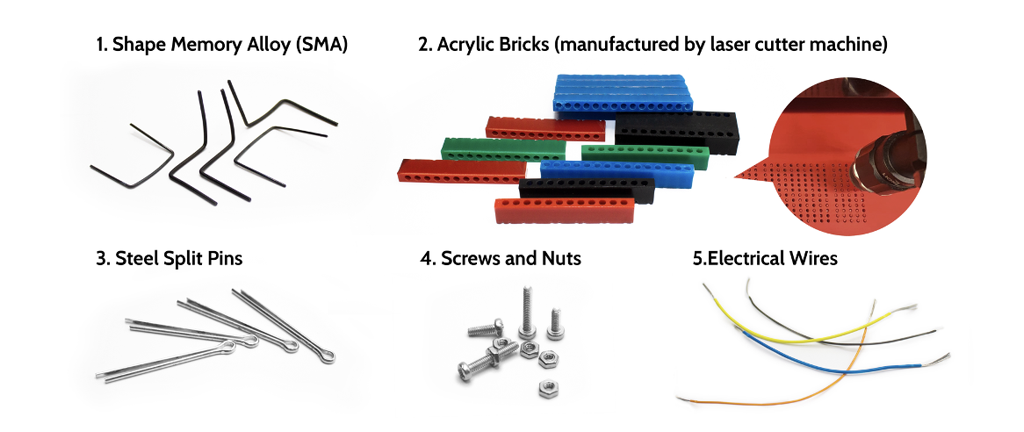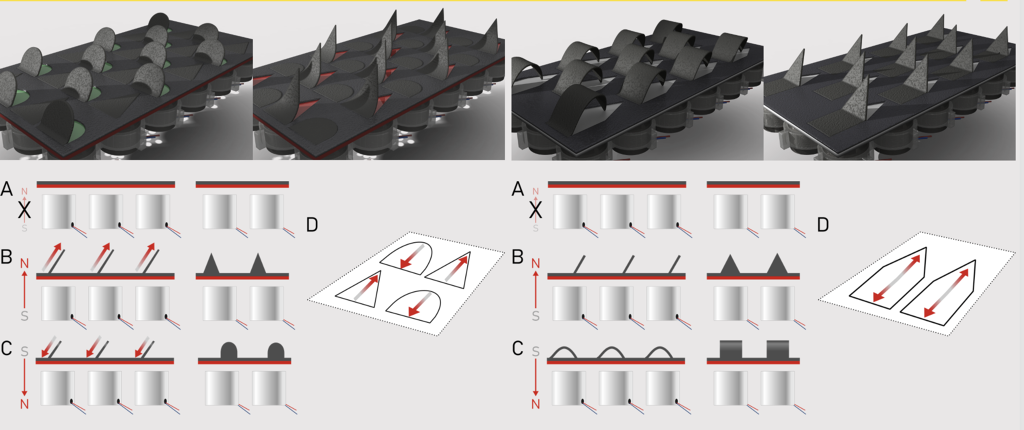Shape Morphing Material Systems
Making material systems with shape-morphing materials is a new way of designing, making and using materials. In future design, we envision that products will not have fixed shapes and properties, but will have built-in variability befitting advanced functionality, e.g., dynamic user interaction.
Traditional product design and manufacturing often lead to a single functionality. This not only limits the product’s functionality but can also result in a negative ecological impact or loss of efficiency. Smart material systems offer opportunities for combining different functionalities or creating new types of functionality. Smart materials such as Shape Memory Materials (SMMs) can be programmed so that they change shape or properties, without the need for additional hardware such as motors, pullies or gearwheels. Although many such smart materials have been developed, they have not yet been used to their full potential as they still remain largely unknown to the design world. This study addresses these issues.



We present two examples of shape-morphing material systems. The first is a constructive shape-changing toolkit, ‘Mimosa’ - a modular Self-folding Hinges Kit for Creating Shape-changing Objects. The toolkit is based on shape memory alloy (SMA) technology actuated by heat. By selecting desired actuation hinges and acrylic bricks, designers can construct a variety of shape-changing objects.
The second is based on magnetically activated shape-morphing materials which can transform into programmed shapes when placed in an external magnetic field. We present a DIY manufacturing approach, based on 4D printing. Using magnetic actuation (induced e.g., by a permanent magnet), products can be made which can assume a variety of shapes and forms.
Designing material systems such as wearable haptic devices or assistive tools for sensory-impaired people (e.g. visually impaired (VI)) can assist them with navigation, mobility and spatial awareness. The aim is to improve VI people’s interaction with the complex world. In another medical health domain, shape-morphing devices can add value to invasive surgery techniques where both shape and property can be programmed instantaneously by the surgeon.
Share
Contacts
- -Sepideh GhodratView profile
- -Qiang Liu
- -Kaspar Jansen
Editions
Themes
Links
Emerging materials labShape morphing products
LinkedIn | Mimosa
LinkedIn | 4D printing magnetically activated shape morphing objects



